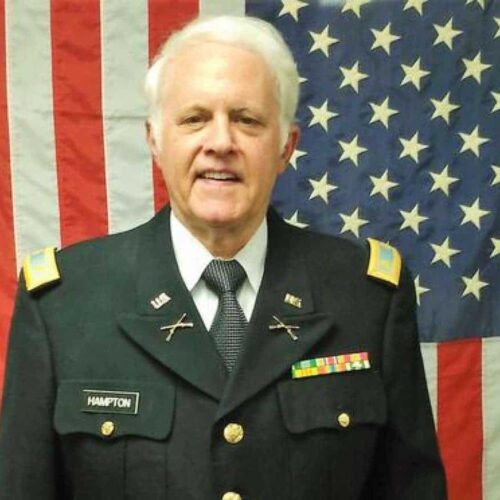This article was co-published by Salon.
Introduction
The leader of a veterans-focused political action committee rapidly increased payments to himself late last year, following a Center for Public Integrity investigation into his political and charitable operations.
Brian Arthur Hampton, a retired Army major and treasurer of the Put Vets First! PAC, paid himself $20,350 in December 2017 alone — more than three times his compensation in December 2016, according to new disclosures filed with the Federal Election Commission. Few leaders of federal PACs earn that much money.
In all, Hampton paid himself $110,000 from his PAC during 2017. Federal income tax records indicate Hampton also earned about $340,000 in 2016 from two veterans charities he runs out of the same office in Falls Church, Virginia: the Circle of Friends for American Veterans and the Center for American Homeless Veterans. (Tax records for 2017 are not yet available.)
A Center for Public Integrity investigation published in December revealed how Hampton’s organizations have used telemarketers to raise millions of dollars from donors in the past decade — but these fundraisers-for-hire are keeping 85 to 90 percent of the money. Most of the rest pays for overhead, including Hampton’s compensation. Just $7,000 — or 0.3 percent — paid for unspecified “veterans advocacy,” according to the PAC’s federal disclosures.
Source: Center for Public Integrity analysis of Federal Election Commission filing
Hampton did not respond to specific questions from the Center for Public Integrity about his PAC’s spending generally or his own salary. In a statement emailed Friday, Hampton defended his use of telemarketers.
“Our PAC fundraising costs are indeed high,” Hampton wrote, but by using telemarketers, the committee “has no liability if the fundraising goes south.”
Put Vets First! PAC raised more than $2.35 million in 2017, mostly from small-dollar donors who the PAC, by law, isn’t required to identify.
Meanwhile, Hampton’s PAC spent $2.32 million during 2017. None of that money went to political committees, including those of the many congressional candidates who advocate for military veterans.
Where did most of Put Vets First! PAC’s money go? More than $2.1 million went to pay a dozen companies the PAC hired for fundraising services. The $110,000 Hampton paid himself also stands out.
PACs are generally used by corporations, unions and various interest groups to raise and spend money for the purpose of electing and defeating political candidates, although federal law gives PACs fairly wide latitude on how they may otherwise spend their money.
In his statement, Hampton said it’s more useful for his PAC to educate candidates about veterans’ issues through phone calls than it is to donate to their campaigns.
“Our own experience is that relentless and ongoing dialogues with candidates is more effective than outright monetary contributions we made in the past,” Hampton said.
Daniel Petalas, the FEC’s former acting general counsel, who reviewed the Put Vets First! PAC’s latest FEC filing at the request of the Center for Public Integrity, questioned Hampton’s PAC’s operation.
“He is skating on thin ice,” said Petalas, today a principal at law firm Garvey Schubert Barer. “The more he collects himself and the more the entities associated with him collect…the more likely it is that it catches the attention” of federal officials.
But the FEC’s rules don’t expressly prohibit PAC leaders from getting paid above fair market value, said Michael Toner, a former Republican FEC chairman and attorney at Wiley Rein LLP.
“The real check on this type of activity is donors not putting up with it, to be blunt,” Toner said.
For the first three quarters of 2017, Hampton contracted with telemarketer Outreach Calling to raise funds for the PAC.
But the latest filing shows the PAC has cut ties with the company, which in December was also the subject of a Center for Public Integrity investigation. Hampton has replaced Outreach Calling with its telemarketing subcontractor, Residential Programs, and several other firms, many without websites or much public presence: Market Process Group, TPFE Inc., Pledge Assistance LLC, GSI Inc., American Public Resource LLC, Premier Calling Inc. and Lifeline Services Inc.
Read more in Money and Democracy
Veterans Charities
New York attorney general investigating Virginia-based veterans charity
New disclosures show embattled group’s leader continues to draw large salary
Veterans Charities
State and federal officials accuse veterans nonprofit of misleading donors
Brian Arthur Hampton has raised millions, but spends little money on vets





Join the conversation
Show Comments